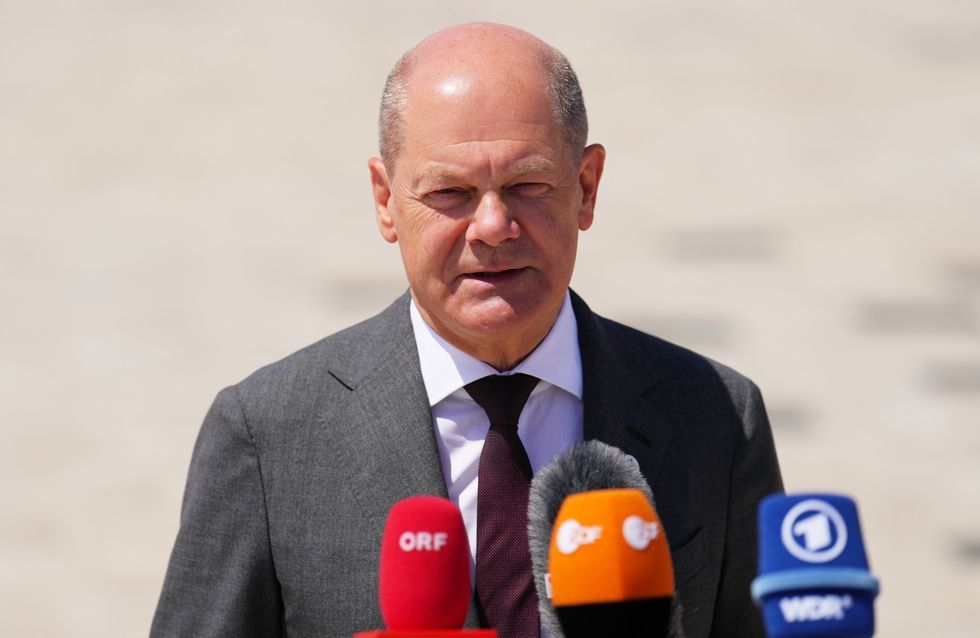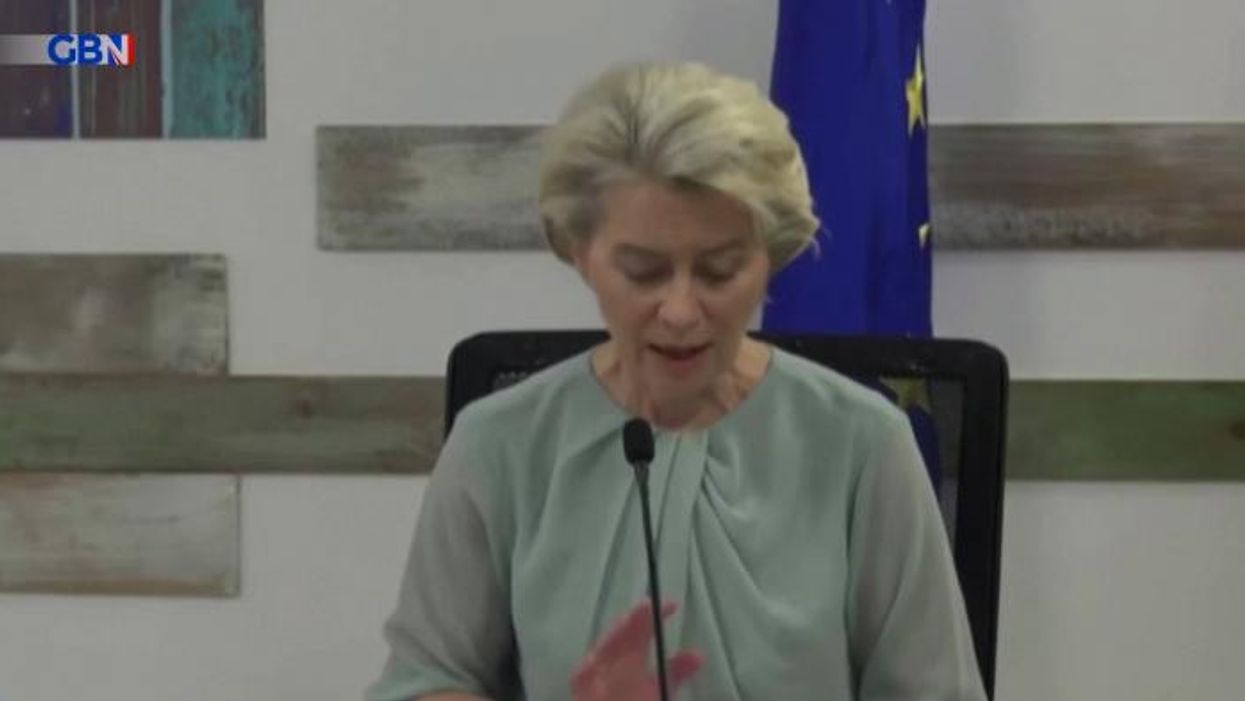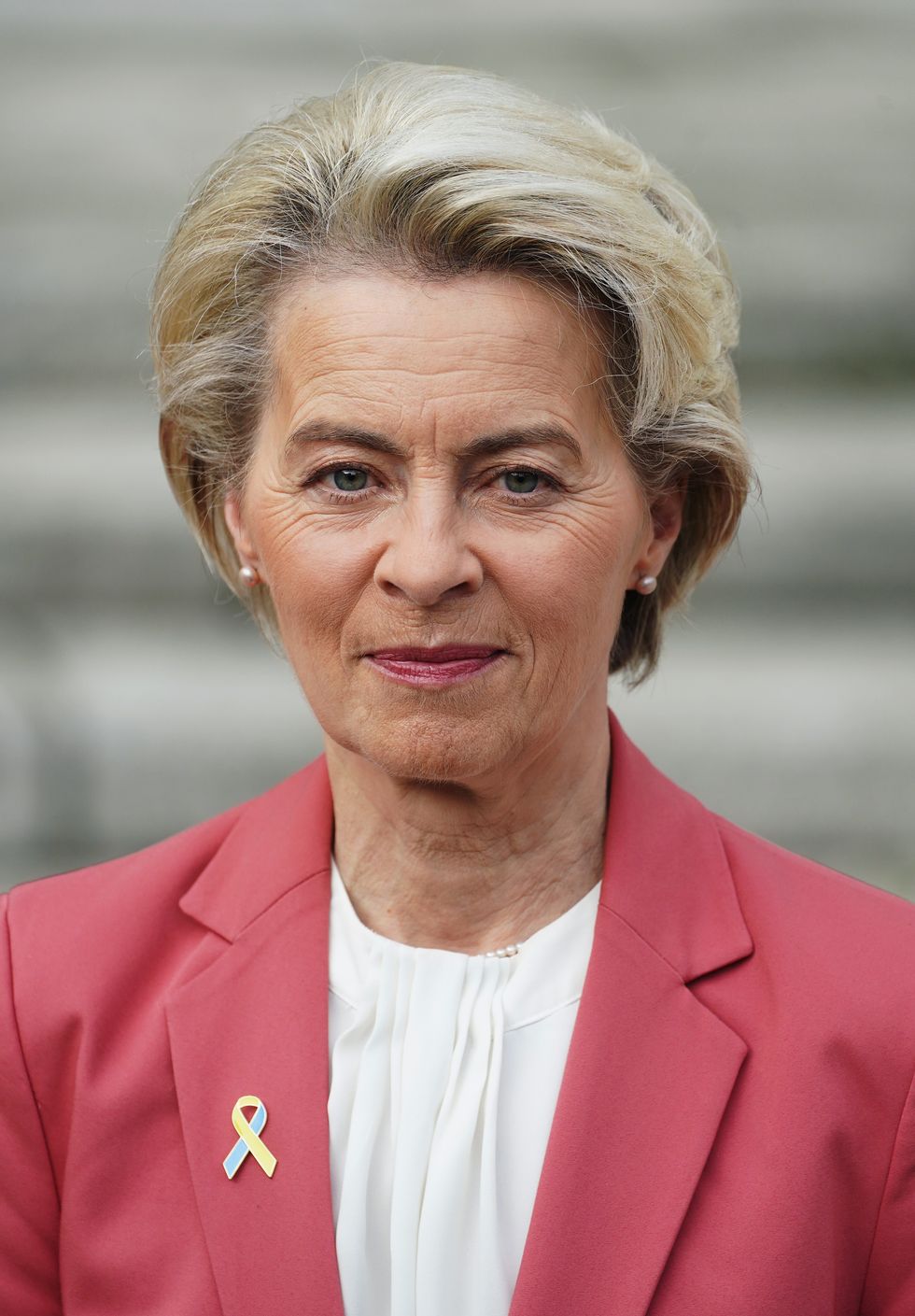The wider European Union voted to introduce a historic crackdown on migration earlier this month
Don't Miss
Most Read
Trending on GB News
Germany will extend checks on its borders ahead of the Euro 2024 football tournament, its interior minister has suggested.
The checks were imposed on its eastern last autumn to curb migration, but the EU nation has since suggested it will extend the checks to cover all borders ahead of the tournament.
German Interior Minister Nancy Faeser said: "The illegal migration figures have indeed decreased, but we still register many asylum requests.
“This is why I think we will have to extend the checks once again."

Germany is expected to prolong border checks on its borders ahead of the Euros 2024 football tournament
PA
She added: "After six months, you always have to evaluate them and find out if they are still necessary. The European Commission then has to approve them again."
"“As a rule, host countries tend to protect themselves, so we will probably introduce checks on borders with all neighbours".
The six month evaluation period comes to an end in March.
The wider European Union voted to introduce a historic crackdown on migration earlier this month, which proposes the detention of migrants for up to six months in some cases, as well as the detention of unaccompanied minors deemed to be a security risk.
The plans limit the number of people coming into the EU, as well as coming to an agreement designed to share the cost of hosting migrants and refugees.
Ukrainian refugees will be exempt from the restrictions, as part of the EU's temporary protection directive.
The vote came after the bloc reached an agreement on reforms to its migration rules last year. At the time of the agreement, President of the European Parliament Roberta Metsola said: "The EU reached a landmark agreement on a new set of rules to manage migration and asylum."
European Commission President Ursula von der Leyen added: "Migration is a common European challenge – today’s decision will allow us to manage it together".
The new migration pact comes in the wake of mounting pressure on the EU to introduce measures to crack down on migration from its member states. It comes alongside the mounting popularity of right-wing parties in member states, most of whom are campaigning on a promise to limit migration.
LATEST DEVELOPMENTS:
As many as 11 EU countries - including Germany - had already broken with Schengen free movement rules to introduce controls on migration.
Countries including France, Slovakia and Sweden re-instated border restrictions including identity vetting, passport checks, police interviews, static checkpoints and vehicle inspections.
Such restrictions on movement were abandoned many years ago as part of the Schengen Treaty.










